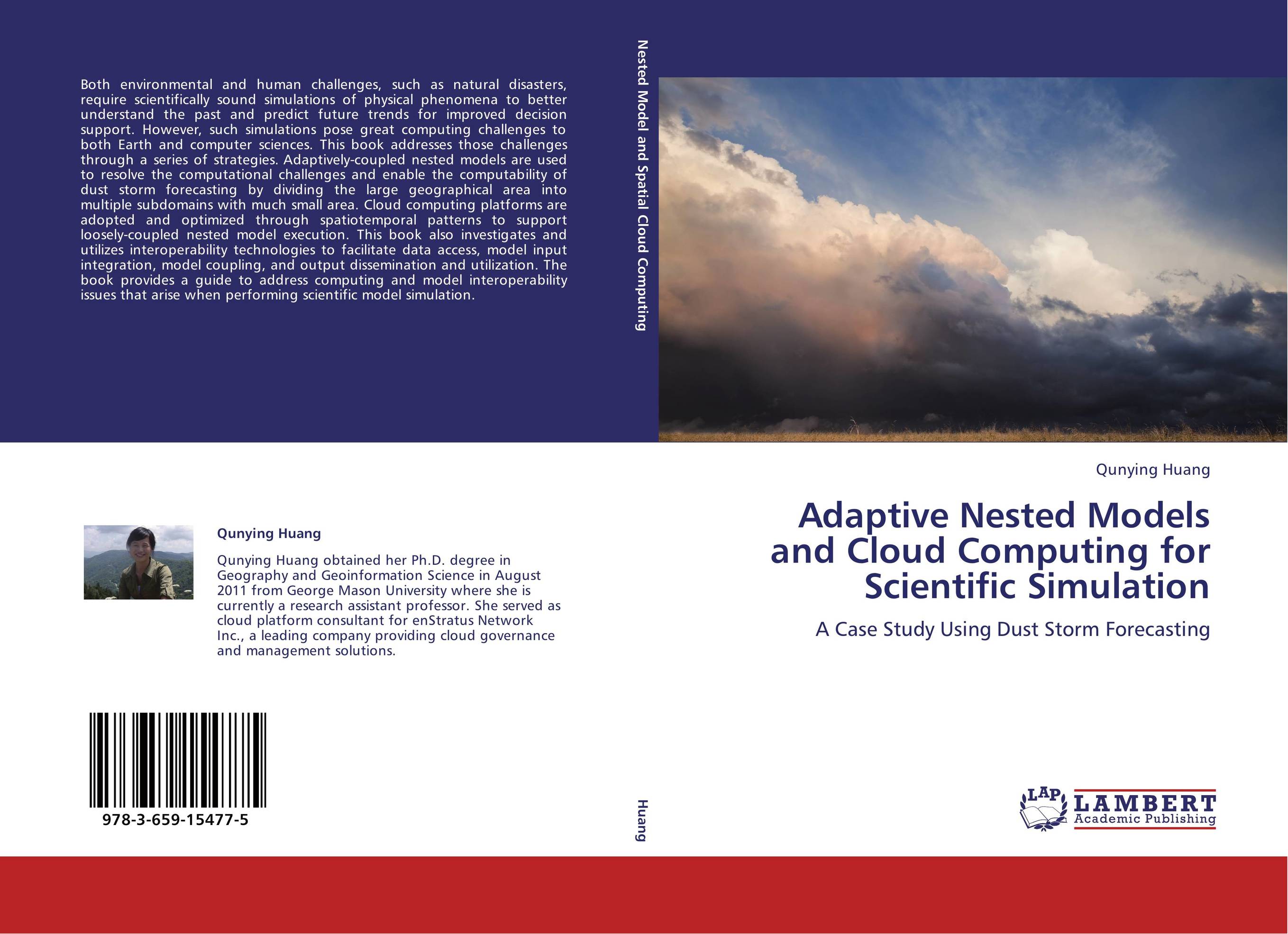| Поиск по каталогу |
|
(строгое соответствие)
|
- Профессиональная
- Научно-популярная
- Художественная
- Публицистика
- Детская
- Искусство
- Хобби, семья, дом
- Спорт
- Путеводители
- Блокноты, тетради, открытки
Adaptive Nested Models and Cloud Computing for Scientific Simulation. A Case Study Using Dust Storm Forecasting

В наличии
| Местонахождение: Алматы | Состояние экземпляра: новый |

Бумажная
версия
версия
Автор: Qunying Huang
ISBN: 9783659154775
Год издания: 2012
Формат книги: 60×90/16 (145×215 мм)
Количество страниц: 120
Издательство: LAP LAMBERT Academic Publishing
Цена: 31921 тг
Положить в корзину
| Способы доставки в город Алматы * комплектация (срок до отгрузки) не более 2 рабочих дней |
| Самовывоз из города Алматы (пункты самовывоза партнёра CDEK) |
| Курьерская доставка CDEK из города Москва |
| Доставка Почтой России из города Москва |
Аннотация: Both environmental and human challenges, such as natural disasters, require scientifically sound simulations of physical phenomena to better understand the past and predict future trends for improved decision support. However, such simulations pose great computing challenges to both Earth and computer sciences. This book addresses those challenges through a series of strategies. Adaptively-coupled nested models are used to resolve the computational challenges and enable the computability of dust storm forecasting by dividing the large geographical area into multiple subdomains with much small area. Cloud computing platforms are adopted and optimized through spatiotemporal patterns to support loosely-coupled nested model execution. This book also investigates and utilizes interoperability technologies to facilitate data access, model input integration, model coupling, and output dissemination and utilization. The book provides a guide to address computing and model interoperability issues that arise when performing scientific model simulation.
Ключевые слова: Parallel Computing, Cloud Computing, Nested Model, Geospatial cyberinfrasturcture, interoperability, Spatiotempal computing



